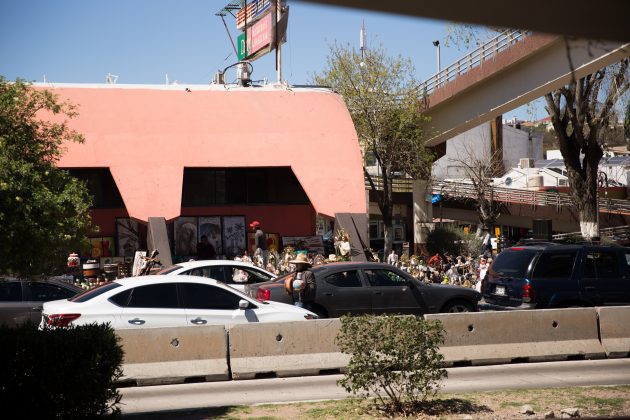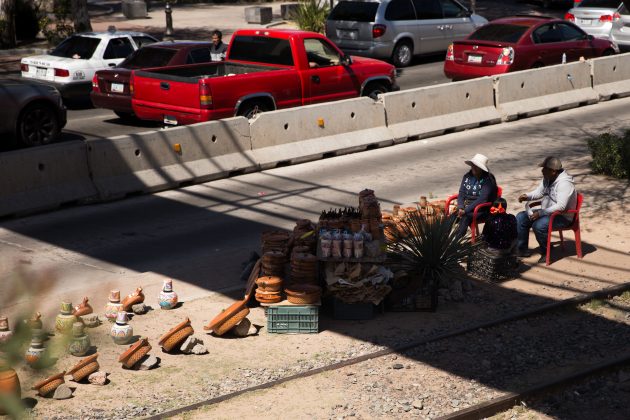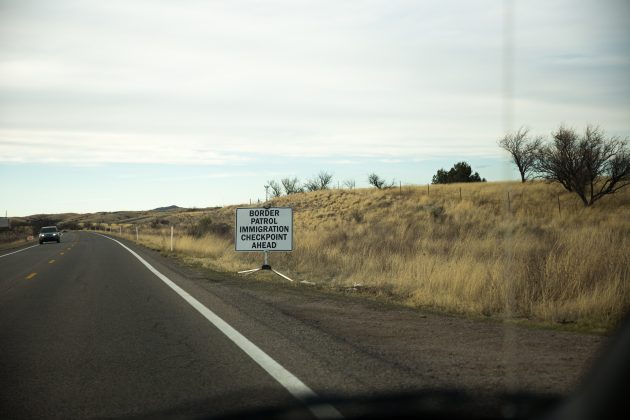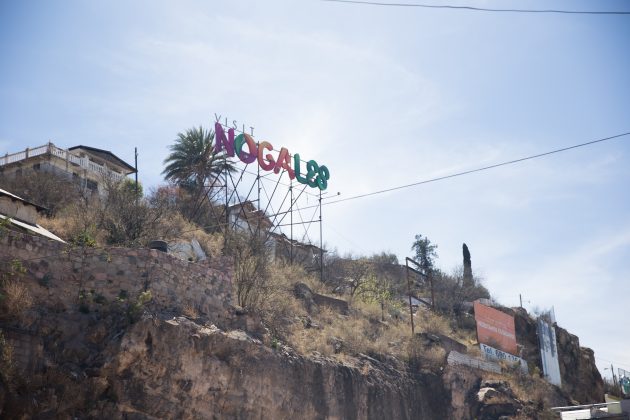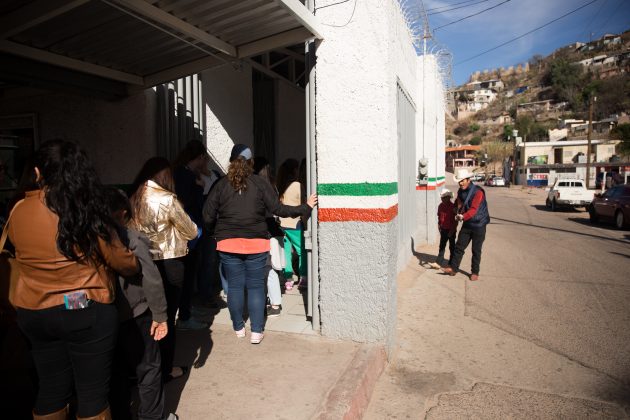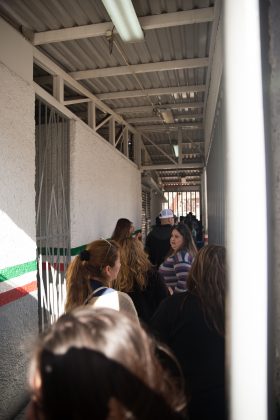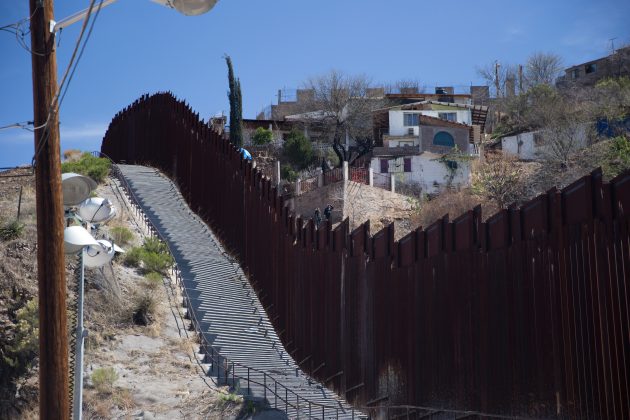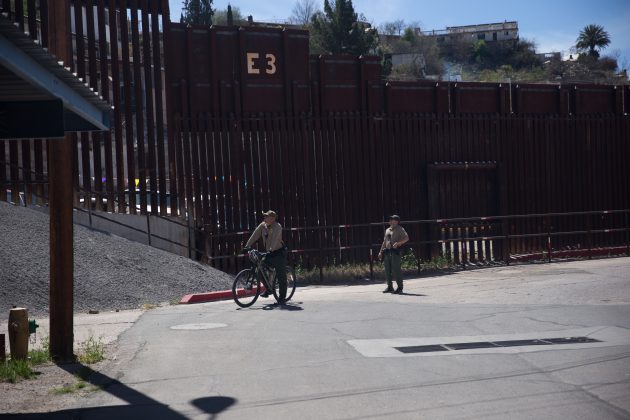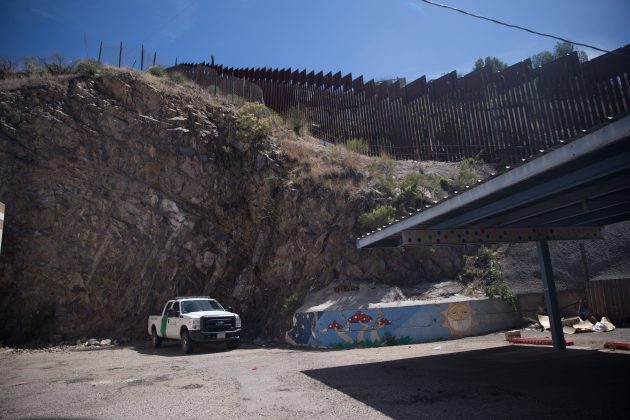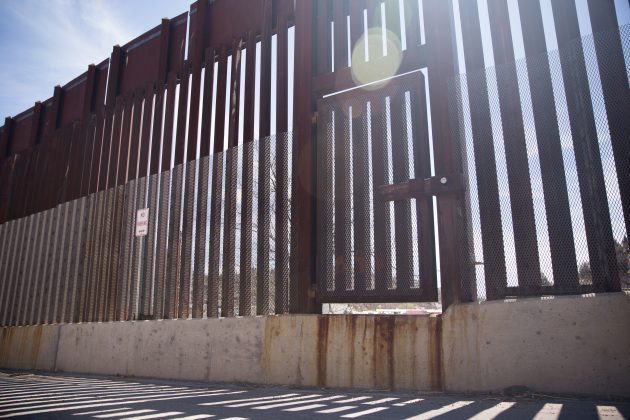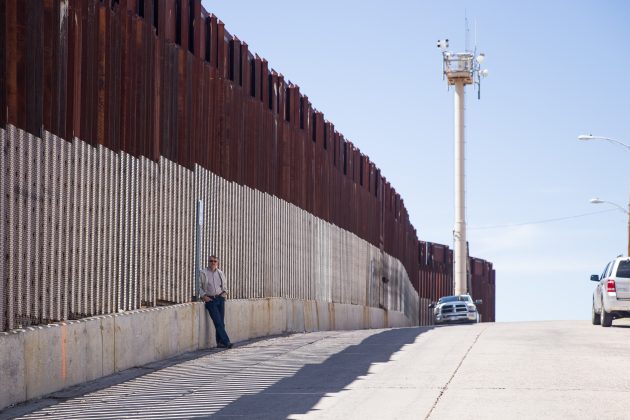Editor’s note: Immigration has been a political boondoggle for at least two decades in the United States. Congress has yet to come up with a system that will successfully address the complexities, and President Donald Trump has taken some decisions into his own hands.
Sixth in a series
Staying illegally wasn’t the plan for Kevin Correa and his family.
Kevin said the family moved from Argentina to Iowa on tourist visas in 2000 when he was 7 years old.
As members of the LDS Church, they believed in navigating the proper legal channels to stay longer in the United States, and several years passed while they waited on legislation that would grant the family temporary protected status.
When the legislation didn’t pass, they sought political asylum, but an asylum petition must be filed within 12 months of arriving in the country, and the Correas had already been in the U.S. for more than two years. Despite Kevin’s father telling an immigration judge about the dangers they had faced in Argentina, their case was denied in 2006.
Several more years passed while the Correas appealed the judge’s decision, during which time Kevin said the family moved to Utah and paid taxes and social security, despite being in the United States illegally.
“We always had fear in our hearts,” Kevin said. “I lost my grandma and grandpa during that time, and my uncle was unable to visit and see them for years.”
Kevin said their lawyer told their family they could re-open their case when they had been in the U.S. for 10 years.
In October 2010, just shy of that 10-year mark, Kevin was awakened by his mother and a police officer.
His father was arrested for being in the country illegally. He was in jail for two weeks while the Correas sold most of their possessions and then moved back to Argentina. Kevin eventually attended school in Canada, where he now works as a web developer.
The Correas are just some of the thousands of immigrants who overstay their visas each year. In fiscal 2016, there was no recorded departure for 128,806 of the more than 21.6 million Visa Waiver Program visitors, according to the Department of Homeland Security. And an undetermined number of people illegally immigrate through dangerous means such as crossing the desert.
Despite the legal repercussions or physical dangers, a variety of economic factors continue compelling people to enter or stay in the United States illegally.
Kevin said his family stayed because of the lifestyle.
“I think the United States gives you the ability to live comfortably with a regular job,” he said. “In any job in Mexico or Argentina, you have enough for the bare minimum, if that sometimes.”
Economic revival
Economics impact much of the migration dynamic, according to Jerry Haas.
Haas is the executive director of Border Community Alliance, “a non-profit organization dedicated to increasing cross border awareness and improved bi-national relations,” according to its brochure.

Border Community Alliance provides day-long, cross-border tours to encourage “a more balanced narrative about Mexico to replace the media’s narrow focus on drugs, violence and immigration,” according to its website.
“Mexico itself has been through an economic revival,” Haas said, with more Mexicans moving back to their native country than coming to the United States in the last five years.
He said Mexico ranks at 15th globally for gross national product, and Mexican shoppers spend about $1 billion a year in the Tucson region. He added that Mexico has a rising middle class of about 36 million people, or about the population of Canada, and it’s about as economically prosperous as South Korea’s population.
“If you think of it in those terms, you get out of the mindset that this is a very, very poor country,” Haas said.
Despite this, Haas said wages are still too low for much of the population, with about 40 percent of Mexicans living in poverty. He said when subsistence farmers can no longer compete with global markets, they move toward cities, where there’s high competition for jobs paying only about $100 a week. Simply crossing the border and working at a fast food restaurant, however, could mean making $12 an hour in some cases.
Some maquiladoras — U.S.-owned factories operated in Mexico — have tried retaining workers by providing incentives such as housing, healthcare, transportation and meals. This doesn’t solve many women’s problem of finding childcare, however.
Another reason people may cross the border illegally is legal hurdles. Haas said a Mexican passport costs $150, and the U.S. Department of State reports a U.S. visa costs $160. Haas said both fees are paid without the guarantee that the visa will be granted, which makes the legal process unaffordable for many people earning only $100 a week.
Some people who immigrate illegally are seeking asylum, which would change their status to refugee.
According to information packets obtained by The Daily Universe at the Tucson Immigration Court, winning asylum also means the chance to eventually become a permanent U.S. resident; however, obtaining asylum means a person must show there’s at least a 10 percent chance their home country’s government will harm them.
Other requirements include showing the harm faced in their home country is very serious; the home country’s government can’t or won’t control the harm against them; and they’re being harmed because of a special status, such as race or religion. They also can’t have any prior deportations or aggravated felonies.
The information packets also state that a person who has immigrated illegally can also seek Withholding of Removal or Convention Against Torture, which have similar stipulations as asylum but have additional requirements, including showing there is more than a 51 percent chance their home country’s government will harm them.
Protecting American interests
Ira Mehlman, media director for the Federation for American Immigration Reform, said people immigrate because there are substantial benefits whether it’s done legally or illegally.
The Federation for American Immigration Reform believes immigration within limits can be positive and lower levels of immigration will “allow America to manage growth, address environmental concerns and maintain a high quality of life,” according to its website.
Mehlman said what gets lost in the immigration debate is that immigration laws protect the American people’s interests. He said immigration affects Americans’ jobs, how their tax money is spent, their children’s classrooms and “just about everything that’s important to them.”
For example, Mehlman said people living in the country illegally occupy 8 million American jobs — a number estimated by the Pew Research Center in March 2010. He said this has forced some people into lower-paying jobs because people living in the country illegally often accept lower wages and poorer working conditions.
Many people working for lower wages rely on government services, and in most cases, taxes aren’t being deducted from their paychecks, Mehlman said. The Federation for American Immigration Reform estimates the total cost of illegal immigration on the United States is $113 billion.
Mehlman also said some schools are overwhelmed because of families living in the country illegally, particularly when their children have language barriers or other special needs.
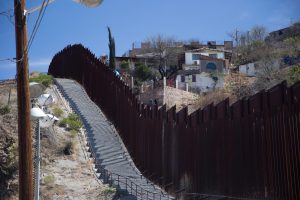
He said enforcing existing immigration laws, such as preventing people from working and denying sanctuary, would deter people from illegally crossing the border.
“If we systematically eliminated the benefits of breaking the law, far fewer people will break the law,” he said.
Mehlman also said changing or eliminating the current legal immigration system isn’t the solution.
“There’s always going to be more demand than we can accommodate,” he said. “You simply cannot address the problem by saying ‘We’re just going to let everybody come legally.’ It would remove the illegality, but it wouldn’t in any way eliminate the impact it has on people in this country.”
Border Patrol Agent Christopher Sullivan said people cross the border illegally for economic reasons or because they’re trying to escape a situation, but they’re often encouraged by transnational criminal organizations only looking for a profit. These criminal organizations target regular people and “feed them with lies” by telling them, for example, that Chicago is only a few miles over the border.
“They put illegal aliens in harm’s way while endangering American lives,” he said. “And they put them (a person illegally crossing the border) in danger because the smuggler doesn’t see them as a human being like we do; they see them as a dollar sign. For every person they can get across the border, they profit.”
Sullivan said these criminal organizations also smuggle weapons, drugs and people with dangerous criminal records, further endangering American communities.
He also said the current legal immigration process is up to lawmakers, and “until the law changes, we’re going to follow the law.” Sullivan said the Border Patrol encourages everyone to immigrate legally.
Bettering lives
Tucson City Council Member Regina Romero said she’s always thought caring for people is her responsibility, regardless of whether they’re in the country legally.
Romero, who was elected in 2007, grew up in a farm-working community on the border. Living among migrant families showed her the plight of working families.
“So we saw the work and the value of people immigrating to the United States to work hard and add to the economy of our country, and so I know the migrant life firsthand,” she said. “I would venture to say that 99 percent of the people that come to this country come to work, come with the good intention of bettering their life. Little animals migrate to find new space so they can survive. People do that, too.”
Romero said both those who immigrate legally and those who immigrate illegally help the community and the economy, and the fastest growing business owners in the country are of Hispanic origin.
“Communities should really see immigrants as a valuable resource and be able to consider them as part of the city or town,” she said.
Tucson City Council Member Richard Fimbres, who was elected in 2009, said immigrants provide many services, such as hospitality, food service and agriculture. He also said they pay into Social Security.
“So they provide a lot of pluses for us,” he said.
He added that Tucson is a very immigrant-friendly community that doesn’t scapegoat or place blame.
“A lot of people say ‘I never crossed the border, the border crossed me,'” he said. “This whole country has been a melting pot for everybody, and that’s why we’ve had so many good things come out of this country.”
Tucson Mayor Jonathan Rothschild said people living in the country illegally work just as hard as people living in the country legally.
“These are people that have great potential to assist our country and help our economy,” he said.

